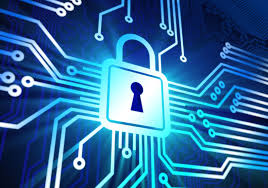The Crucial Role of SSL Certificates in Cybersecurity
We're living in a time where the digital world's expansion brings with it a shadow – the rise of cybercrime, a reality that can't be ignored. The 2023 statistics from the Advanced Analytics Group (AAG) throw light on this shadow, revealing startling figures:
- The UK's Struggle: Topping the charts with 4,783 cybercrime victims per million internet users, the UK's situation is a wake-up call to the rest of the world. It's not just numbers; it's a narrative about the urgency for stronger digital defenses.
- The USA's Challenge: With 1,494 victims per million, the USA's cybercrime landscape, though not as severe as the UK's, still speaks volumes about the vulnerabilities that exist.
- Russia's Alarming Stats: The 2022 data showing over 3.5 million compromised accounts in Russia is more than a statistic; it's a testament to the pervasiveness of digital threats.
These statistics represent more than mere data; they underscore the vital necessity for improved online security measures, where SSL (Secure Sockets Layer) certificates play an integral role. The best way to achieve this is to buy SSL certificates. This blog post will cover the following topics:
- What are SSL certificates?
- The growing role of SSL certificates in cybersecurity
- The different SSL certificate types
- The advantages of SSL certificates
- How to get an SSL certificate
What Are SSL Certificates?
SSL certificates, serving as digital files, are utilized by websites to establish secure connections. Their function involves encrypting the data transmitted between your browser and the site you're accessing, ensuring its confidentiality. Additionally, these certificates authenticate the website's identity, affirming the legitimacy of the site you are visiting and safeguarding against fraudulent entities. This aspect is particularly crucial in the realm of online transactions and the management of personal information, thereby guaranteeing both confidentiality and security.
Think of SSL certificates as the guardians of internet communication. They're not just digital protocols; they're the vanguards that encrypt sensitive data and confirm a website's legitimacy. Imagine having a secret handshake that ensures every conversation you have is with the right person – that's what SSLs do in the digital realm.
The Growing Role of SSL Certificates in Cybersecurity
Nowadays, in the world of online connections, SSL certificates have gone way beyond their original role of just being tools for encrypting messages. They have morphed into pivotal elements of the cybersecurity infrastructure. As cyber threats become more complex and cunning, the importance of SSL certificates in protecting our online dealings has really come to the forefront. These certificates do a lot more than just jumble up data to keep it safe; they're like a seal of approval that shouts out a website's genuineness. It's a way of telling users, "Hey, this site is secure, and your personal info is safe here."
This expanded role of SSL certificates is especially crucial in a climate where trust is paramount. The visible cues of SSL certification, like the 'https://' in a website's URL or the padlock symbol, have become key indicators of a safe and secure online environment. These symbols are not just comforting to users engaging in sensitive transactions but are essential for any digital platform handling personal data. SSL certificates, therefore, have evolved from optional security enhancements to indispensable components of a robust online security framework, symbolizing a shift in their significance from a backend security feature to a frontline necessity for establishing digital trust.
Types of SSL Certificates
- Domain Validated (DV) Certificates: Ideal for the smaller sites and blogs, DV certificates are like the first line of defense – simple yet effective, ensuring basic encryption with straightforward domain ownership verification.
- Organization Validated (OV) Certificates: Stepping up the security game, OV certificates not only confirm domain ownership but also validate the organization's existence. They're the middle ground for businesses balancing credibility and security.
- Extended Validation (EV) Certificates: The crème de la crème of SSLs, EV certificates undergo a rigorous verification process. In settings where large-scale organizations require absolute trust and peak security levels, the adoption of this solution is a standard practice.
- Wildcard SSL Certificates: For the businesses juggling multiple subdomains, Wildcard SSLs offer a one-size-fits-all solution, securing an array of subdomains under one roof.
- Multi-Domain SSL Certificates: The Swiss Army knife of SSLs, these certificates secure various domains under one banner, simplifying management and cutting costs.
SSL Certificate Benefits
SSL certificates bring to the table benefits that go well beyond encryption:
- Fortified Data Protection: Picture SSLs as the digital equivalent of an unbreakable vault, keeping critical information safe from the prying eyes of cyber miscreants.
- Elevating Customer Trust: When a website flaunts an SSL certificate (look for 'https://' in the URL), it's like a badge of honor, reassuring customers about the safety of their data.
- SEO Benefits: Search engines have a soft spot for SSL-certified sites, often boosting their rankings, which translates to more eyes on your site and more organic traffic.
- Compliance and Credibility: Adhering to standards like PCI/DSS isn’t just about ticking boxes; it’s about showing your commitment to safeguarding customer data.
How to Get an SSL Certificate
To ensure the security of your website start by selecting a Certificate Authority (CA) responsible for issuing SSL certificates. Afterward it is important to generate a Certificate Signing Request (CSR) on your server. This is basically your application form that includes your website and company details. After you've sent this off to the Certificate Authority, they'll check out your details to make sure everything's legit. Depending on the type of SSL certificate you're after, this checking process can be pretty quick or quite detailed. Once they give you the thumbs up, they'll send you the SSL certificate. Your last step is to set it up on your server and switch your website over to HTTPS – that's what gives your site visitors a secure connection.
Conclusion
In this era, where our online existence is deeply entangled with the web's vast network, ignoring key cybersecurity measures such as SSL certificates is pretty much like forgetting to lock your doors in the digital world. These certificates aren't just about beefing up security; they're fundamental ingredients in creating a digital space you can really trust. In our battle against ever evolving cyber threats the importance of SSL certificates transforms from a discretionary indulgence, to an indispensable requirement. These certificates serve as guardians safeguarding both businesses and consumers within the expansive realm of the digital marketplace.
To wrap up, the digital landscape is ever-changing, and so are the threats that lurk within it. SSL certificates are not just a solution but a proactive step in fortifying our digital presence. The question is not about their relevance but about how swiftly and adeptly we can integrate them into our digital defenses.
Compass IT Compliance plays a crucial role in helping businesses fortify their digital presence in this era where cybersecurity is paramount. Compass IT Compliance provides essential guidance and tools to businesses, enabling them to effectively counter the rising wave of cyber threats. By partnering with Compass IT Compliance, businesses can navigate the complexities of digital security with greater confidence, ensuring their online operations are both safe and reputable. This support is invaluable in a landscape where maintaining a secure and trustworthy digital presence is not just a necessity, but a fundamental aspect of business success. Contact us today to learn more!
Contact Us
Share this
You May Also Like
These Related Stories

Cybersecurity Insurance: Think You're Covered?

Different Kinds of Hacker Hat Colors Explained

.webp?width=2169&height=526&name=Compass%20white%20blue%20transparent%202%20website%20(1).webp)
-1.webp?width=2169&height=620&name=Compass%20regular%20transparent%20website%20smaller%20(1)-1.webp)
.webp?width=610&height=362&name=March%202024%20CTA%20(3).webp)
No Comments Yet
Let us know what you think